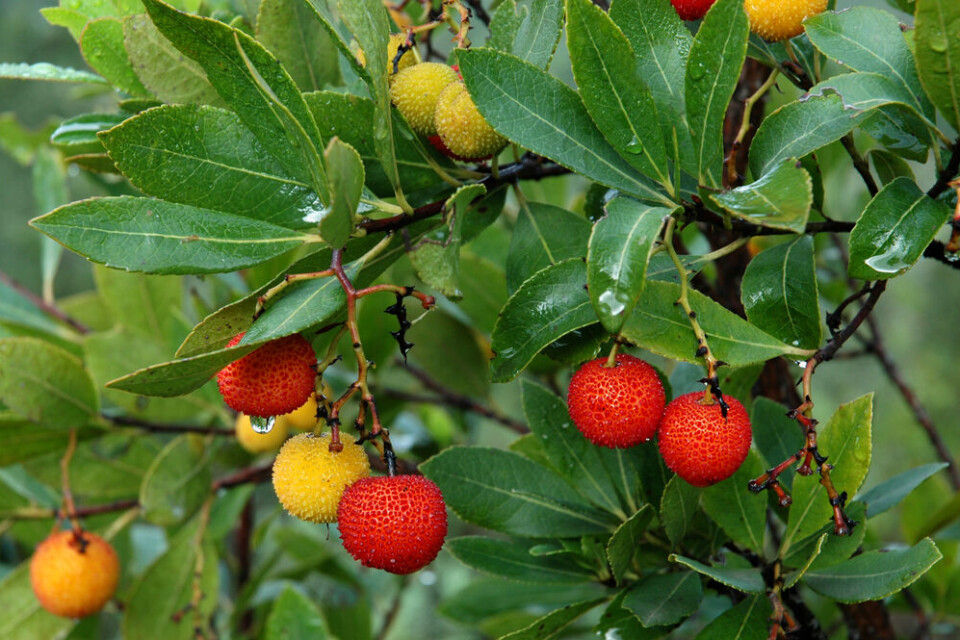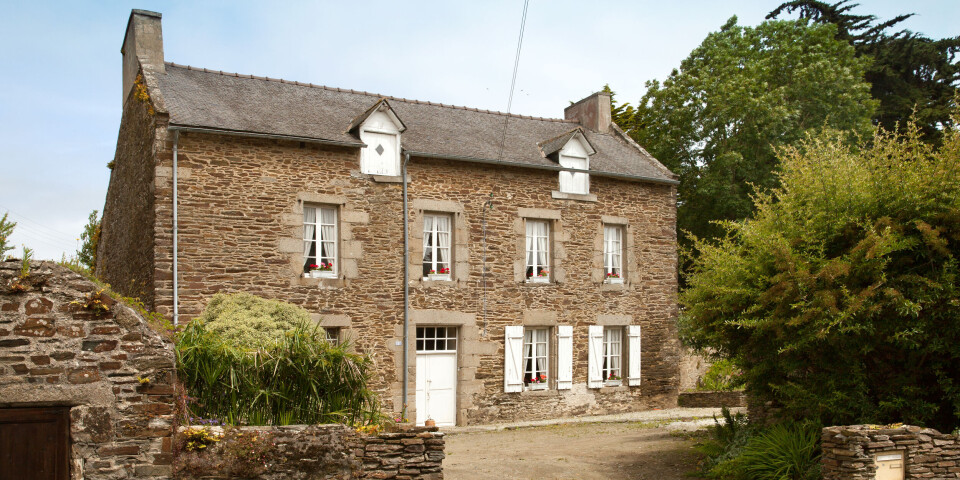-
Classic French recipe with an exotic twist: caramelised onion soup
A dish inspired by the travels of two Paris chefs
-
HPI final season: the end of a French TV phenomenon
Comedy-thriller starring Audrey Fleurot that gripped France airs final episodes
-
Call to pull up highly allergenic plant in south of France
Ragweed should ideally be removed before the flowering period in August and September
France’s autumn strawberries: the arbousier fruit
The red berries have a sweet but bland taste

The arbousier reaches maturity in autumn, growing bunched together with next year’s crop of immature white berries.
This often overlooked spiky red berry flourishes all around the Mediterranean, where it is known for its sweet but rather insipid taste.
The exotic looking evergreen shrub with shiny, deep green leaves is so unknown in the English world that it is misleadingly called the strawberry tree.
In French it is called the arbousier, however, its proper name is Arbutus unedo, a name coined after Roman author Pliny the elder apparently claimed “unum tantum edo”, or “I only eat one”, due to the fruit’s plain taste.
Irrespective of this, the shrub is the national tree of Italy, since its green leaves, red fruit and white immature berries display the colours of the flag.
Forestry experts have recently suggested that the shrub, which has grown persistently in the Mediterranean region since classical antiquity, could help the recovery of regions affected by forest fires.
It is frequently the first to recover after fires due to its deep, extensive roots that also help to prevent erosion.
Read more: ‘Strawberry tree’ helps woods recover after fire, French experts claim
The twisting trunks of the Arbutus shrub grow freely in the Mediterranean and can reach up to 10m in height.
Its berries, or arbouses, grow slowly over the course of a year, changing from white, to yellow, to red and covered with a hard shell of spikes. Due to their slow growth, new fruit grows alongside riper fruit.
Once the red shell becomes somewhat soft to the touch, the fruit can be plucked from the shrub.
Only the pulp inside the shell can be eaten, either raw, in jam or as a compote. Connoisseurs find that its slightly bitter taste marries well with alcohol.
Indeed, the fruit was the key ingredient in the Le Ledounat liqueur of Gascony in the 19th Century.
Read also
Discover the aesthetic joys of a super ‘dry’ French Occitanie garden
When and at what times can you mow your lawn in France?
Visit: stunning dry garden in Aude wakes up like spring in Autumn
























